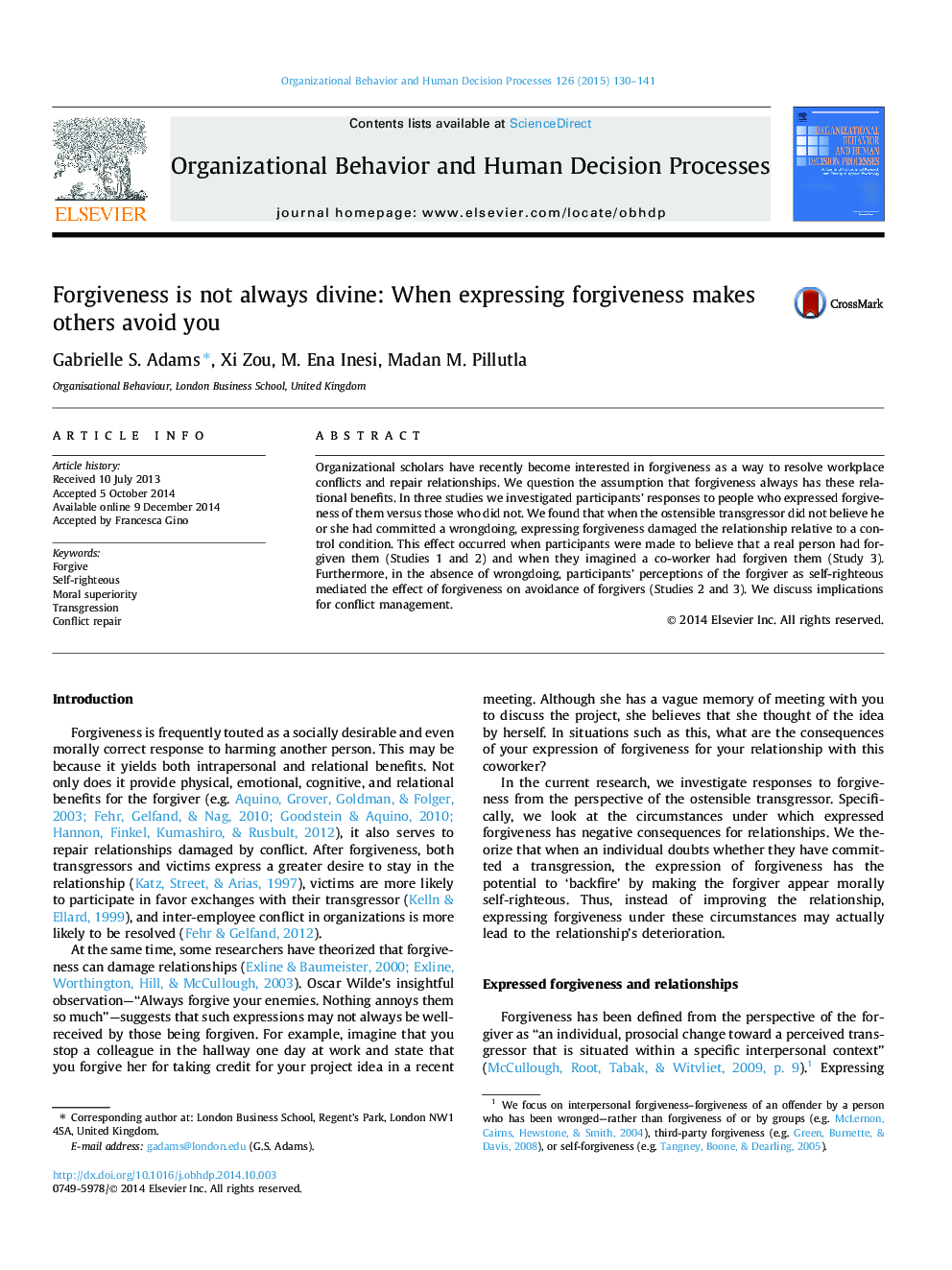| کد مقاله | کد نشریه | سال انتشار | مقاله انگلیسی | نسخه تمام متن |
|---|---|---|---|---|
| 888564 | 1471855 | 2015 | 12 صفحه PDF | دانلود رایگان |
• We question the normative mandate that people should always express forgiveness.
• We examined responses to targets who express forgiveness versus those who do not.
• In the absence of perceived wrongdoing, ostensible transgressors avoid forgivers more than non-forgivers.
• The effect was due to perceptions of forgivers as self-righteous.
Organizational scholars have recently become interested in forgiveness as a way to resolve workplace conflicts and repair relationships. We question the assumption that forgiveness always has these relational benefits. In three studies we investigated participants’ responses to people who expressed forgiveness of them versus those who did not. We found that when the ostensible transgressor did not believe he or she had committed a wrongdoing, expressing forgiveness damaged the relationship relative to a control condition. This effect occurred when participants were made to believe that a real person had forgiven them (Studies 1 and 2) and when they imagined a co-worker had forgiven them (Study 3). Furthermore, in the absence of wrongdoing, participants’ perceptions of the forgiver as self-righteous mediated the effect of forgiveness on avoidance of forgivers (Studies 2 and 3). We discuss implications for conflict management.
Journal: Organizational Behavior and Human Decision Processes - Volume 126, January 2015, Pages 130–141
